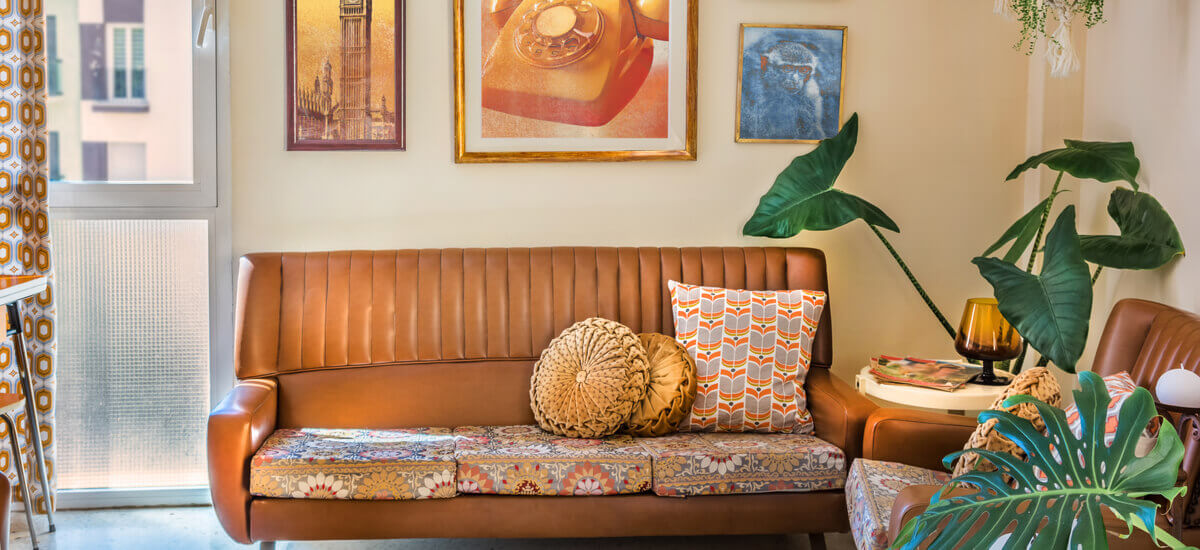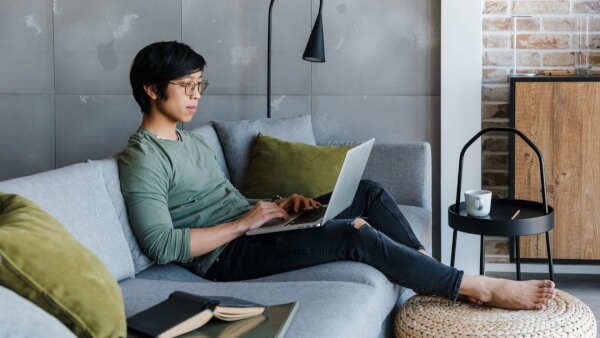How to get mortgage for overseas property as an American
Learn all about different ways to get an overseas property mortgage as an American and gain unique insights to prepare yourself for the whole process.

Airbnb has revolutionized what it means to travel. But if you’re a happy Airbnb customer, you may also be wondering: is Airbnb profitable for hosts?
This guide runs through some of the key factors which dictate how much Airbnb profit you may be able to make as a host, as well as some basic steps to get started if you’re considering making the jump from guest to host on Airbnb.
Read on for all you need to know about whether or not owning an Airbnb is profitable.
The amount you can make as an Airbnb host depends on a broad range of factors. Some hosts have occasional guests, some are fully booked year round. Some have high end properties which command an impressive nightly rate — others are more on the budget end of things.
That said, there’s definitely money to be made as an Airbnb host if you have the right property and location. And the US is the biggest earning place to be as a host. Let’s look at the stats¹:
| Country | 2020 Airbnb average annual host earning |
|---|---|
| US | 24,886 USD |
| Australia | 16,148 USD |
| UK | 12, 154 USD |
Let’s also take a look at how profitable different cities in the US are for Airbnb hosts:
| US city | 2020 Airbnb average annual host earning |
|---|---|
| San Diego, CA | 35,073 USD |
| Kissimmee, FL | 33,726 USD |
| Las Vegas, NV | 24,971 USD |
Airbnb doesn’t charge you to list your property and start inviting guests. You’ll only pay once you have some income.
However, that doesn’t mean you won’t need to pay anything at all to get started. You may decide to get professional photos taken to go with your listing, as an example. This can help make your property stand out. Some hosts also choose to upgrade and replace furnishings to better suit the type of client they’re hoping to get — and charge a bigger fee.
How much it actually costs to become an Airbnb host will vary wildly by situation, but doing your own research is essential to make sure you’re entering a profitable venture.
Before you invite guests to your property you’ll want to consider the operating costs. These may include²:
|
|---|
The total cost of these ongoing payments will depend a lot on your personal preferences, and the space you’re letting out.
Airbnb charges a flat 3% rate for most hosts. This is calculated based on the rental fee you select, plus any cleaning fee you add³.
You may pay more if you’re listed as an Airbnb Superhost — this may make your listing more attractive to visitors, making it potentially worthwhile.
There’s no simple answer when it comes to the profit margin you may achieve as an Airbnb host.
The good news though is that you can set your own nightly rate — so if you have a property that’s really attractive, and are able to market yourself effectively, you could hit an impressive profit margin as your occupancy rate grows.
Some people do make a living as Airbnb hosts. However, for many more it’s a side hustle, a way to contribute towards home loan costs, or just a fun way to meet new people.
| 🌎 Need to send or receive money internationally? Do it the Wise way |
|---|
|

If you’re thinking of starting an Airbnb, use this step by step list to help work through what you’ll need to do.
If you’re serious about starting to host an Airbnb property, check out the range of host resources available from Airbnb to learn about all you need to know in more detail⁴.
Real estate is all about location — and hosting an Airbnb is no different. If you’re considering buying a property to let out, make sure you’re clued up about the perfect places to choose.
And if you’re listing a property you already own, think about how it looks and what may draw visitors in. Presenting an attractive space in photos — and providing information about all the fun places and amenities nearby can go a long way. Airbnb points out, even a modest space is a good fit, as long as it’s comfy, clean and good value⁵.
Before you start on Airbnb you’ll need to check whether or not you’re able to have guests in the property⁶. If you’re renting you’ll need to check your rental agreement to see if short term sublets may be allowed — and even if you own your own property you’ll probably have to check with your mortgage provider or Homeowner Association to make sure there are no bars on Airbnb hosting.
As well as seeking permission from your mortgage lender or Homeowners Association, you may also need to apply for licenses or permits from your local council.
Next, you’ll need to work out how much you can charge for your Airbnb. There are a few ways to go about this — looking around the local area to see what other hosts are charging is a good start.
Remember to take into account your operating costs and the Airbnb fees when you decide on your eventual price.
You have complete control over the prices you charge for staying in your Airbnb. Take a look at what other properties near you, or similar to yours, charge. Talk to other local hosts if you can. Or consider getting a professional to help about how to market your new business if you’re unsure.
Airbnb hosts set their own prices — so you have a lot of opportunity to maximize your profits here. Think about how to make your property as appealing as possible — unique selling points mean higher nightly rates.
While you might start out running your Airbnb on your own, it’s worth knowing a popular Airbnb means a lot of work. There’s managing bookings before arrival, then receiving and helping guests when they stay, arranging checkout and cleaning. It’s a lot for one person to take on.
There are some great things about being an Airbnb host — and also some drawbacks.
Here you can find a quick overview on the pros and cons before we dig a little deeper:
| ✅ Pros | ❎ Cons |
|---|---|
|
|
Airbnb nightly rates tend to be higher than those you can command for a longer term let. You’ll also be able to personally veto and approve all guests when you take their bookings, and will have the support of the Airbnb team if anything goes wrong.
When you start out as a host on Airbnb you’ll need to think realistically about the difficulties it may cause you. From the demands of being there to let guests in, and answer their questions, to the increase in the costs of running your home, and even the possibility that guests may cause damage to your property — it’s not without disadvantages.
Buying an investment property of any sort is a big decision — and you’ll want to have a thorough business and financial plan in place before you get started. Buying a property for Airbnb can be more flexible and more profitable than buying an investment property for long term rental. But it’s not easy to run — so make sure you’ve thought through all the ups and downs you’ll likely meet along the way.
Buying a property overseas for Airbnb hosting can make good financial sense — but you’ll need to have a team on hand to help you manage it. You'll also need to take into account the general complexities of buying a property overseas in a market you may not be familiar with, where language and cultural barriers may cause additional stresses.

If you need to pay a mortgage or utility bills abroad, Wise can help cut the costs of currency exchange.
You get the real mid-market exchange rate every time with low, transparent fees — and with the Wise Multi-currency Account you can also get paid fee free in major foreign currencies.
Set up a Wise account to hold, send and exchange 50+ currencies all online and from your phone.
There’s a lot to think about when you host on Airbnb. While it’ll all become second nature over time, it can feel like a lot to take in at first. Here are some pointers — there’s a whole lot of helpful ideas, articles and videos over on the Airbnb website, too.
Stay on the right side of the law when you’re hosting on Airbnb. That means checking out zoning rules which dictate how you’re allowed to use your space, local taxes that may apply like occupancy taxes and VAT, and local laws which may require licenses or permits to host.
The taxes and legalities of running an Airbnb vary widely by region, so make sure you get the correct details for your area. There are resources on the Airbnb website, and you can also connect with your local government and other hosts in the area to get information.
If local taxes must be collected from your guests, Airbnb may be able to add these to the guest bill during checkout. That means you won’t need to worry about guest taxes as they’re dealt with centrally.
In some locations, however, guest taxes must be collected manually by hosts, so you’ll need to check the rules where you are before you start.
You can see what your guests pay in total including Airbnb fees and tax in the host breakdown email you receive when confirming a booking.
As well as learning about any required local licenses and permits, you’ll also need to keep up to date with how your Airbnb income should be reported as income tax. Tax rules do change from time to time, so keeping up to date is essential — in the US, for example, IRS rules from 2022 mean you’ll need to update your details as a host before the end of 2021 to avoid having income withheld⁷.
| ⚠ Bear in mind that anything featured in this article is for information only — you’ll need to check out the details of how tax rules apply to you via Airbnb and the IRS directly, or consult a tax professional. |
|---|
Before you invite guests to your home it makes sense to make sure your things are secure. And if you’re sharing a space you’ll also want to take steps to keep yourself safe, and make your guests feel comfortable as they share your home.
If you’re sharing a space, simple steps like adding a lock to the door of your rented room, tidying away personal items and setting clear house rules about what is and is not shared can all help.
If you won’t be in the property at the time of guests arriving, make sure nothing valuable or fragile is left out, and consider creating an inventory for the property in case of any issues.
Part of the fee you pay Airbnb every time you host goes towards limited insurance cover in the case of issues with your property.
However, this is not a substitute for your own insurance and won’t cover you for personal liability. You’ll need to make sure you have proper insurance in place to cover all eventualities.
Airbnb will release your payout about 24 hours after a guest has checked into your place. If you have longer term guests you may be paid monthly.
The length of time it’ll take to get your money depends on your preferred payout method. Bank transfers can take 3 - 7 business days, but options like PayPal are typically quicker⁸.
It’s good to know you can also choose to charge a refundable security deposit for your property to protect you against guest damage.
Being an Airbnb host can be a fun hobby, a side hustle to generate extra income, or a full time job. It all depends on your personal preference, your space and how much time you have to dedicate to it.
Use this guide to help you decide if hosting on Airbnb is for you — and don’t forget, if you’re considering a property overseas and need to make international payments, you could save with Wise.
Save on international payments
Sources:
Sources checked on 11.12.2021
*Please see terms of use and product availability for your region or visit Wise fees and pricing for the most up to date pricing and fee information.
This publication is provided for general information purposes and does not constitute legal, tax or other professional advice from Wise Payments Limited or its subsidiaries and its affiliates, and it is not intended as a substitute for obtaining advice from a financial advisor or any other professional.
We make no representations, warranties or guarantees, whether expressed or implied, that the content in the publication is accurate, complete or up to date.

Learn all about different ways to get an overseas property mortgage as an American and gain unique insights to prepare yourself for the whole process.

Get a full overview of the best property management software systems for small landlords to easily track and manage their overseas property.

How to buy your first rental property overseas? Here's a detailed guide that can help you understand the challenges and steps for making an investment.

What are the best property management software systems for managing student housing? Take a look at our list and choose the most suitable option for you.

Are you thinking about making smart property investment decisions and wondering how rental yield is calculated? Have a look at our guide to find out.

Have a look at the in-depth guide on the Singapore rental yield market and get a detailed breakdown of opportunities in different areas within the country.